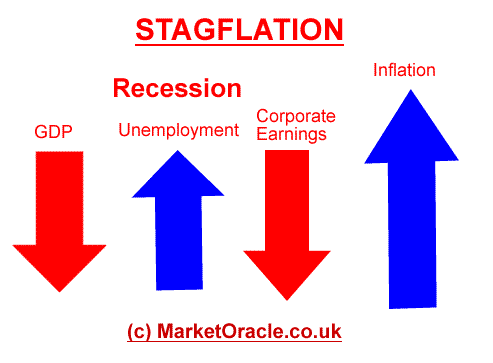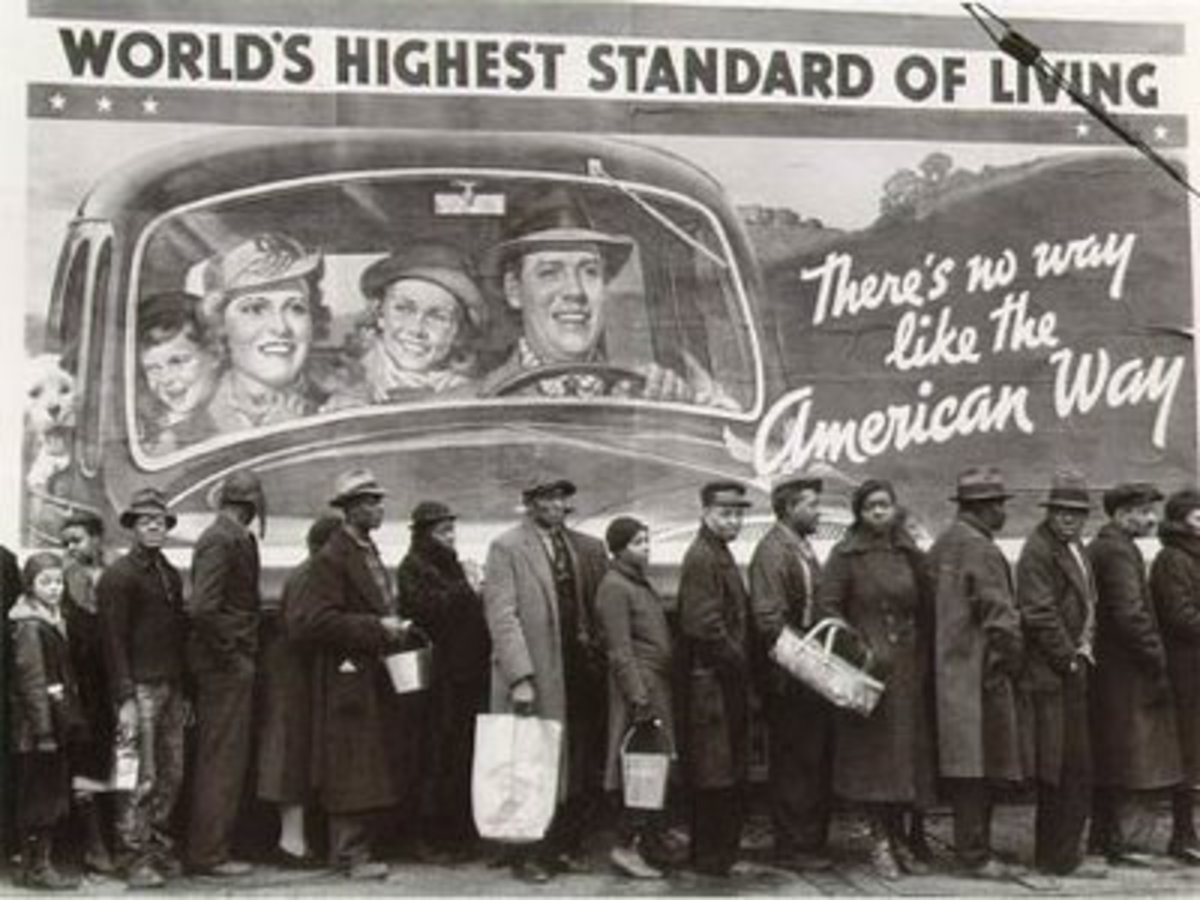An Overview of Stagflation

What Is Stagflation?
With so much emphasis being placed on the state of the American economy on news channels and at dining tables across the nation, it is important to understand what specific economic terms mean. One such economic term that is said repeatedly is “stagflation.” However, very little know what this term mean. Put simply, stagflation is an economic condition in which inflation and economic stagnation are occurring at the same time and have remained unchecked for a significant period of time. In short, stagflation is when inflation is high at the same time unemployment is high.

What Are The Causes of Stagflation?
There are two main explanations of why stagnation exists. First, stagflation can occur when the economy is shocked by a sudden decline in supply. For example, stagflation can occur when the price for oil raises dramatically in a short period of time. The effect on the rise in the price causes a decrease
The second explanation offered by economists as to why stagflation occurs is simply bad economic policy. For example, allowing too fast of a growth in the money supply or over regulation of markets. Each of these factors lead to a dramatic rise in costs and prices and lead to a loss of jobs.


Stagflation: An Example
The recession of the 1970s is the most important example of an economy suffering from stagflation. Interestingly, before the recession of the 1970s, economists believed that stagflation was nearly impossible. However, due to a combination of factors, these economists were proved wrong.
The first major cause of the recession that hit the United States, and all industrial nations was the Vietnam War. The war had lasted much longer as anyone predicted and cost much more money than any government administration thought. As a result of the high cost of the war, the United States was forced to borrow money or in some cases simply make more money. This increase in the money supply caused prices to rise even more.
However, the war itself was only one factor. During this same period time, oil producing countries in the Middle Ease stopped exporting oil to the United States due the United State’s support of Israel. As a result, the low supply of oil caused the price to soar. Also, at this same time, competition in the steel market caused a sharp decline in steel production and a rise in unemployment. The result of this was the recession that hit in 1973 and lasted nearly two years. For the first time, there was a combination of high unemployment and high inflation.

Stagflation: Conclusion
In the end an economy suffering from stagflation has a hard time recovering. Normally to curb inflation, the Federal Reserve raises interest rates, however this affects unemployment. And to combat high unemployment, interest rates are generally cut, but this leads to inflation. Basically, the government has little power to achieve the right balance to combat both economic crises at the same.
Related Articles
- Gas Prices And Deregulation: George Bush's Legacy
Someone asked as a request whether the rise of gas prices is tied to a Bush being into office. The simple answer is yes, but not for the reasons that you would think. Politics aside, there appears to be a... - What is Inflation, How is it Calculated and How Does it Affect a Nation's Economy?
The term inflation refers to an increase in the amount of money in circulation without a corresponding increase in the amount of goods and services available to purchase with that money. Inflation always... - Progress We Can Believe In
Think back to October 2008. If you remember correctly the world was ending. The American financial system was f.ailing and near total collapse. Half of the homes on your block were in foreclosure. ...







